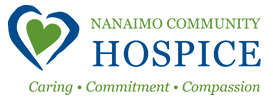Reiki is a Japanese technique that is used to heal physical and mental trauma, and to support mental clarity and spiritual well-being. In Japanese, the word “rei” refers to a higher intelligence that permeates all living and nonliving entities and guides the inherent functioning of the universe. The word “ki” refers to the nonphysical energy that flows through everything that is alive, including plants, animals, and human beings—because of this, ki is also often called “life force energy,” and is known as qi or chi from other lineages. The combination of these two words is what defines reiki as “spiritually guided life-force energy.”



